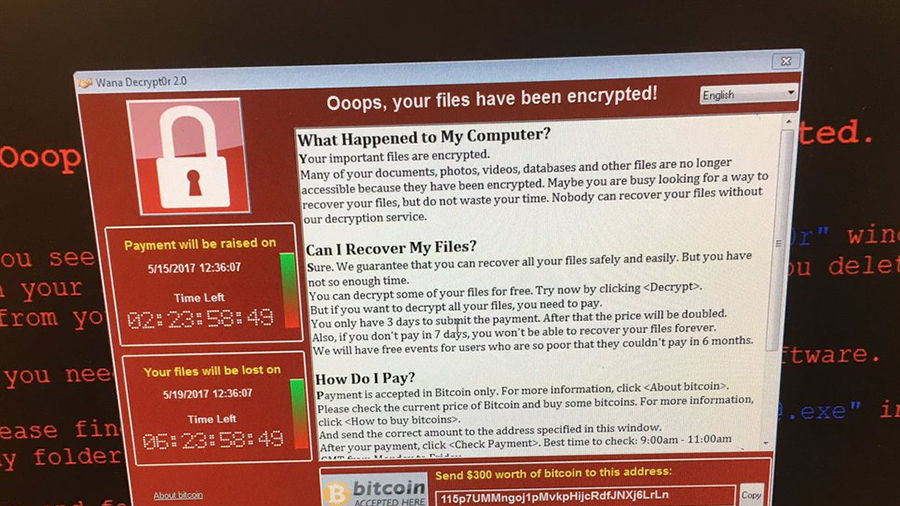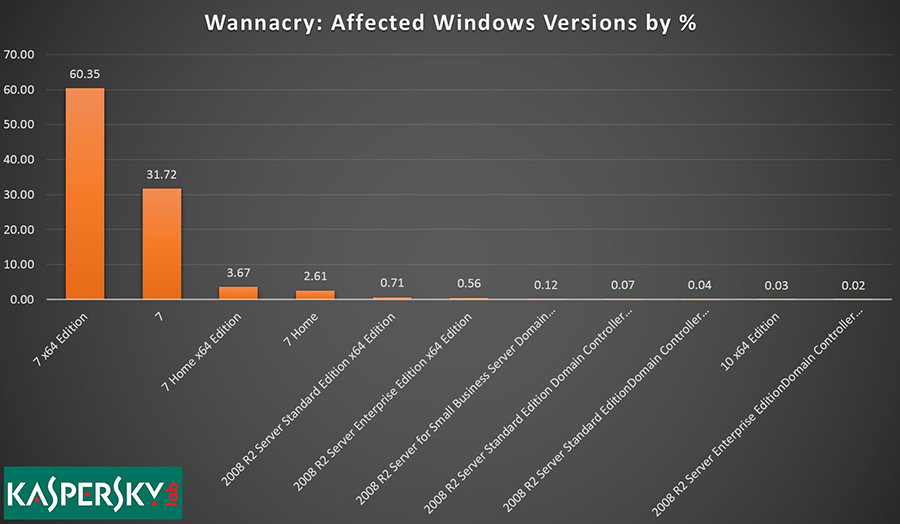WannaCry hit Windows 7 systems hardest, new research shows
More help is on the way

Last weekend the WannaCry ransomware infection caused havoc in hundreds of countries and across hundreds of thousands of machines, and in the immediate aftermath of the hit many were pointing the finger at outdated versions of Windows XP for allowing WannaCry to cause so much damage.
However, new research from Kaspersky shows that 98% of the computers hit by WannaCry were actually running Windows 7 – a more modern OS that's still officially supported by Microsoft. A patch was issued to protect Windows 7 from this kind of exploit in March, so the affected machines would appear to be ones that hadn't yet been updated.
So far Kaspersky has only shared one tweet with the statistic – we'll update this story if we hear more from the security firm – but it shows that running a more recent version of Windows doesn't necessarily make you safe: it's the regular patching and updating that keeps you (and your business) protected, not just upgrading your OS as a whole.
- Luckily, the best gaming PCs run Windows 10

Microsoft no longer provides regular patches for Windows XP, which is why last week's update in response to WannaCry was so unusual. Now it turns out that attacks on Windows 7, an OS released in 2009 that's still the most popular in terms of market share, running on 48.5% of desktop computers worldwide, were far more common.
Windows 10 is the only version of Windows that's completely safe from WannaCry, according to Microsoft, though the ransomware continues to evolve out in the wild. A small number of Windows 10 hits are shown in Kaspersky's chart, but these are due to manual infections carried out for testing.
Meanwhile, security experts continue to release tools to fight WannaCry, with the latest one removing the ransomware as long as the infected system hasn't been rebooted. If you're after a complete guide to how you can stay protected, we've got you covered.
- The best Ultrabooks include the Dell XPS 13 and Asus ZenBook UX305
Sign up for breaking news, reviews, opinion, top tech deals, and more.

Dave is a freelance tech journalist who has been writing about gadgets, apps and the web for more than two decades. Based out of Stockport, England, on TechRadar you'll find him covering news, features and reviews, particularly for phones, tablets and wearables. Working to ensure our breaking news coverage is the best in the business over weekends, David also has bylines at Gizmodo, T3, PopSci and a few other places besides, as well as being many years editing the likes of PC Explorer and The Hardware Handbook.